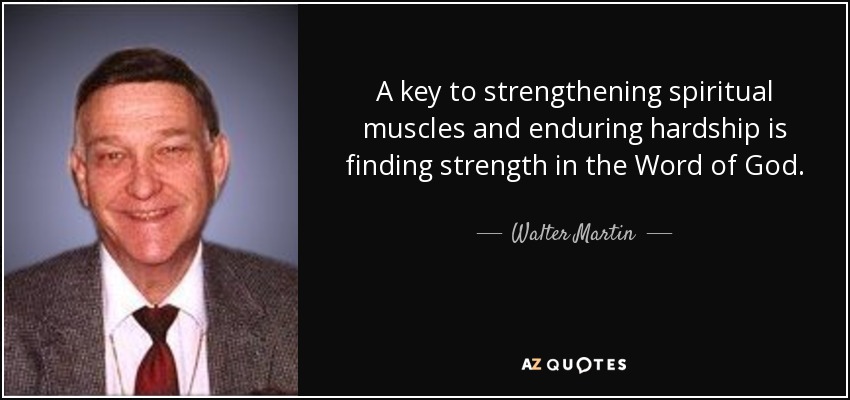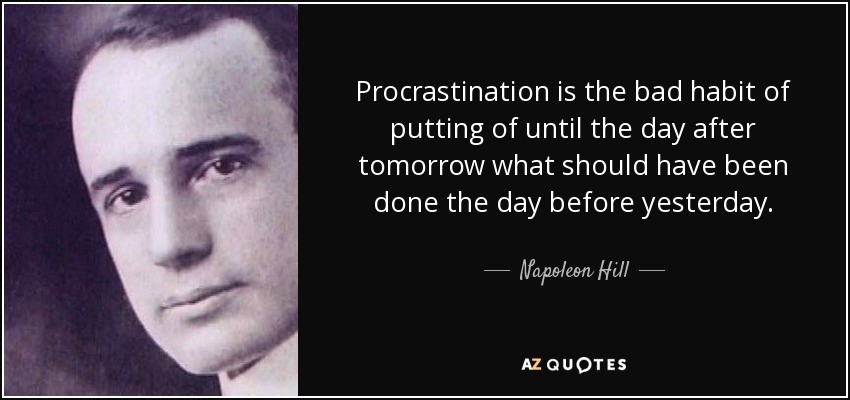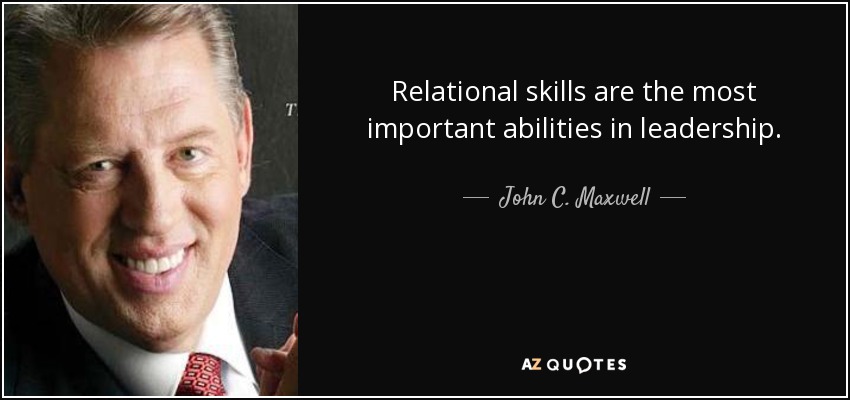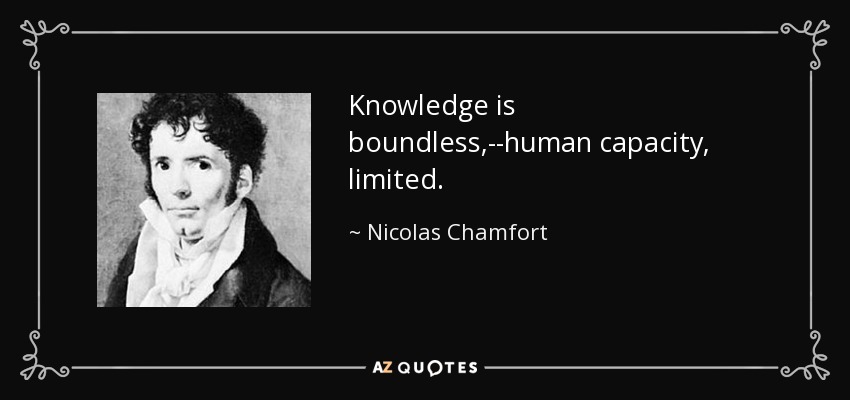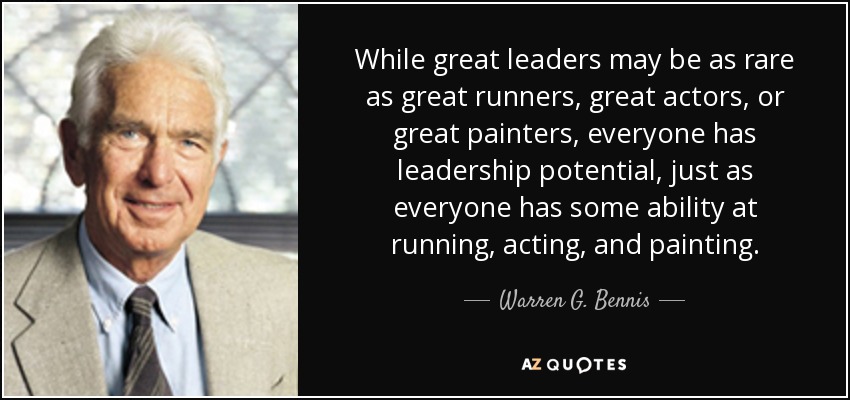Click here to return to Blog Post Intro

Leadership at the Speed of Joy
Management is the efficient accomplishment of tasks. Leadership is producing and maintaining full engagement from our group in what matters. Leadership has become heavily influenced by managerial models, so that the term “lead” has come to mean organizational skills rather than people skills.
Kingdom living, however, is not about organizations, projects or even ministries. It’s about people, and so leadership, in Kingdom terms, would refer to the development of the kind of “people skills” that would help those we have been invited to walk with to achieve their full potential in Christ.
Warner and Wilder have found in both their study of Scripture and brain science that joy, that feeling of well-being in the deepest part of our soul, is primarily relational. To the human brain, joy is always relational. Leadership that neglects joy rapidly becomes management instead of leadership.
R—REMAIN RELATIONAL. Common leaders tend to be problem focused. They are driven by fear of failing to get results and solve problems. Consequently, they value results and solutions more than relationships.
A—ACT LIKE YOURSELF. RARE leaders have a consistency of character anchored in a positive core identity that lets people know that whatever emotions I may face, I still know how to act like myself.
R—RETURN TO JOY. Perhaps the single biggest factor in producing sustainable motivation is the leader’s ability to return to joy from a variety of negative emotions.
E—ENDURE HARDSHIP WELL. Focus on building management systems, and leadership is left to chance. Focus on building leadership systems, and you will always improve management. That is automatic. RARE leaders use difficulties as opportunities to focus on improving relational skills before improving task management.
Most leaders reach their positions because they are really good at getting things done. However, leading is primarily about guiding the group that does the work.
The Difference Between RARE Leaders and Sandbox Leaders
Harvard Business Review coined the term “sandbox leadership”—which, they say, is epidemic. In the past few months we’ve seen [childish attitudes] reflected in the halls of government and corporate boardrooms across the country. Arrogance, pouting, tantrums, personal attacks, and betrayal of trust seem to be the order of the day.
John Maxwell first of 21 Irrefutable Laws of Leadership is the “Law of the Lid”, where he contends that leaders cannot rise above the level of their capability. Through years of leading and talking to other leaders, Warner has become convinced that the number one lid on most leaders is emotional immaturity.
The traditional paradigm that has dominated Western thought for the last four hundred years can be summed up in a simple equation: Reason + Good Choices = Transformation
RARE Leadership offers a different equation: Identity + Belonging = Transformation
- R – Remain relational (belonging)
- A – Act like yourself (identity)
- R – Return to joy (being glad to be together)
- E – Endure hardships well (using hard times to bring us closer)
Joy + Identity = RARE power plant
Joy (no identity) = Party time
Fear + Identity = Terrorist/Religious
Radical Fear + (no identity) = Bully
The Elevator in Your Brain—Building your emotional competence
Start with a personal mission statement. Who has God made me to be? What is my purpose?
When identity is solid and fits with our values, families, work group, and mission, we find ourselves directing (leading) ourselves and our group in the same direction.
Science is reminding us of the importance the Bible has placed on joy. Jesus said He came so that our joy might be complete. The Psalms taught us that joy is found in the face of God. The routine blessing of the high priest was that God’s face might shine on us. Throughout Scripture we see that joy is the motivator that enables us to endure suffering. Jesus endured the cross for the joy that was set before Him. Persecution is to be met with joy. Trials are to be met with joy. Paul rejoiced in what he suffered for the Colossians. He and Silas sang when they were in prison recovering from their wounds. Scripture has a lot to say about joy and how it grows our capacity to deal with hardship. As Nehemiah wrote, “The joy of the Lord is your strength.”
The conclusion of this new science is that relational joy is the natural means for growing a strong, resilient mind. Joy is a natural and sustainable fuel for engagement and the most desirable and powerful of motivating factors in our lives over the long haul.
When fear becomes the dominant motivation in any group, that group will become toxic. When fear is the primary motivation for a leader, that leader will burn out and spread dysfunction to his group in the process. Consider how you solve problems. Will you solve them relationally, creatively, as a group?
When the Fast Track Needs Fixing—The cost of toxic community
When leaders begin to be swayed by who is going to get upset, they are surrendering their guidance to the most emotionally unstable person in their group.
Procrastination is a motivation pattern generated by avoiding the most impending negative outcome.
As unpleasant as the “big six” negative emotions of anger, fear, sadness, shame, disgust, and hopeless despair can be, they do not need to block us from relationships. It is only when emotions block the way to relationship that using emotions for motivation becomes toxic.
Increasing isolation—characterized by such attitudes as “I’d rather do it myself!” or “I alone am left to do the work”—is a warning sign. People are managed and leaders stay aloof without forming any friendships in their group. Rather than seeking the shelter of each other, members avoid the isolation of rejection and criticism. The hardest times to lead are precisely those times when each group member feels “on his or her own” and isolated.
Don’t Take Your Eye Off the Fast Track—When you know who you are, you get results
In leadership there are two primary targets from which we need to choose. Target #2 is by far the most popular and may even seem non-negotiable. That #2 target is “getting results.”
Leaders must keep target #2 as second priority and aim first at target #1: building group identity. The prime target for leadership is the culture of our organization. It answers the questions, “Who are we?” and “How is it like us to act?”
When we know who we are, we get our kind of results.
When Tony Dungy was the coach of the Indianapolis Colts, he would often say things like, “We just need to do what we do, and we’ll be okay.” He didn’t say, “Let’s just win, baby!” He didn’t say, “We’re going to do whatever it takes to win.” He said, “We’re going to strive to be the best version of ourselves we can be, and trust that if we do that, we’re going to win more than we lose.” It apparently worked, because during his tenure the Colts were the winningest team in the NFL!
Healthy group identity is characterized by joy. People like belonging to the group.
Just as Jim Collins says in Good to Great, by building a team with a great group identity, RARE leaders give their teams the best chance of getting results. In the end, the real goal is the creation of a transformative community built on belonging and identity.
Where You Start: Imitation, Identity, Intimacy
Fast-track skills have to be imitated. The right side of our brain doesn’t learn with words. It learns by imitation and practice.
John Maxwell is among the most widely read leadership experts in the world. What many people don’t know is that one of the first books he ever wrote was about prayer. As a college student Maxwell developed the habit of spending the hour after lunch alone with God—just a Bible, a pen, and a spiral notebook. He spent time praying and listening.
Bill Hybels, the founding pastor of Willow Creek Community Church, has developed a similar approach to building intimacy with God. He describes his decision to develop a disciplined approach to prayer in his book Too Busy Not to Pray.
Wilder explains, “I read fifteen or twenty major books on prayer, some old and some new. I studied almost every passage on prayer in the Bible. And then I did something really radical: I prayed. It has been twenty years since I began taking time to pray, and my prayer life has been transformed. The greatest fulfillment has not been the list of miraculous answers to prayers I have received, although that has been wonderful. The greatest thrill has been the qualitative difference in my relationship with God.”
Here are some practical steps that can help us grow our ability to recognize God’s voice and improve our spiritual receptivity:
- Quiet. Just as we need to turn off the TV or stop looking at email if we want to truly listen to others, we need to do the same if we want to improve our connection with God. Scheduling regular times for this type of conversational prayer is often called having a “quiet time” for a reason.
- Scripture Reading. An often-overlooked facet of spending time in the Word is that it orients our souls around the nature and ways of God.
- Appreciation. The psalmist told us to enter into God’s gates with thanksgiving and into His courts with praise. Giving and receiving appreciation builds healthy relationships at a human level.
- Writing. Someone once explained how he kept two notebooks—one with prayers and the other with distractions. Sometimes the distractions were as simple as “you need to change the oil.” Other times they were accusing thoughts from the enemy like, “You’re never going to learn how to do this,” or, “God is never going to speak to you. After years of struggling to spend more than five or ten minutes in relational prayer with God, he soon found it no trouble at all to enjoy an hour or more with God.
- Sharing. When it comes to recognizing and discerning God’s voice, it is a good practice to share what you sense God is saying with others.
For any real transformation to take place, you are going to need a team that is committed to a common goal. We have been calling this team your “identity group.” This is a group of allies, not an accountability group.
This group must be tender toward weakness. We generally don’t need people to beat us up when we fail.
Groups that are tender toward weakness:
- Validate (V) emotions
- Comfort (C) us with new perspectives and possible solutions, and
- Help us repattern (R) so that we can act like ourselves.
Groups that are tender toward weakness are committed to seeking good and are good at the VCR process.
Remain Relational—Keeping relationships bigger than problems
Ever since Dale Carnegie wrote his classic work How to Win Friends and Influence People, leadership books have been filled with relationship advice.
Emotionally immature leaders have almost no capacity to remain relational in the face of big problems. They isolate, they blame, they get angry—and they usually lose themselves in an addiction.
Here are four simple strategies can help you get started in growing the skills that build habit #1—remaining relational. You can use the word CAKE to remember them:
- Curiosity: Curiosity is a clear sign that you are in relational mode. When your relational circuits are on, your curiosity about life and people kicks in. When God showed up in the Garden after Adam and Eve’s sin, He expressed curiosity: “Where are you? … Who told you that you were naked?” (Genesis 3:9, 11). Asking questions may have been one way the Lord was seeking to maintain a relationship even as His creatures had been discovered in their sin. This is in keeping with God’s character since even in His holiness He seeks to restore and enjoy relational connection with His people.
- Appreciation: Sincere appreciation wakes up the relational circuits in us and in the person receiving the appreciation (check out my post summarizing the book The 5 Languages of Appreciation in the Workplace – http://www.outofthisworldleadership.com/2014/03/12/the-5-languages-of-appreciation-in-the-workplace/). Steve Brunkhorst says, “Feeling appreciated is one of the most important needs that people have. When you share with someone your appreciation and gratitude, they will not forget you. Appreciation will return to you many times.”
- Kindness: Kindness can be defined as “shared joy.” It is doing things that create joy for someone else. In the process your joy grows as well.
- Envelope Conversations: An envelope conversation sticks the problem that needs to be discussed into the envelope of relationship. There is a simple pattern to it. You start with the history and importance of the relationship, then you discuss the problem, finally you end with the hope that the relationship will be even stronger once the problem is solved. You can also think of this as a sandwich conversation. You put the meat of the “problem” between the two slices of “relational” bread.
Act Like Yourself—The heart of Christ within us
Paul wrote, “Make my joy complete by being like-minded, having the same love, being one in spirit and of one mind. Do nothing out of selfish ambition or vain conceit. Rather, in humility value others above yourselves, not looking to your own interests but each of you to the interests of the others.”
This is a good description of the type of group thinking that is to characterize Christians when we remember who we are, who our people are, and how it is like us to act. However, rather than living from our identity in Christ, all too often we define ourselves by our malfunctions and shortcomings.
As a leader, when you learn to act like yourself, you create confidence in those around you.
Return to Joy—The “referee” within
Leaders and the groups they oversee all function better when peace is in charge than when upset emotions are running the show. In fact, the most important predictor of a group’s emotional health is its ability to return to joy from upsetting emotions.
We find freedom through forgiveness for deep wounds, tearing down strongholds, taking thoughts captive, and breaking ancestral bondage. One tool Warner recommends for this process is Neil T. Anderson’s Steps to Freedom in Christ.
James 1:20 says, “Human anger does not produce the righteousness that God desires.” And Proverbs 15:1 put it this way, “A gentle answer turns away wrath.”
We must learn the skills of Validation, Comfort, and Repattern if we are to return to joy from unpleasant emotions. When people feel understood, they tend to be far more open to whatever explanation or correction you may have to offer. If you skip the validation process and go straight to correction, you may win the argument and shut down the disagreement, but you will damage the relationship and feed the level of toxicity in the environment. Skipping validation is a classic blunder made by people who are used to problems being more important than relationships.
RARE leaders meet people where they are emotionally, find ways to help them change their perspective or fix their problems, and call out what is best in them. Returning to joy may just be the most important habit you can develop as a leader.
Endure Hardship Well—Building our group capacity
Emotional capacity refers to the amount of stress you can handle before things blow up or melt down. When your emotional capacity gets overwhelmed, trauma occurs and your ability to suffer well gets stunted. Let’s take a closer look at the five levels of emotional maturity taught by the Life Model:
- Infant maturity: Infant-maturity leaders can be just like the old man with the empty coffee cup. The one thing they are really good at is expressing how upset they are.
- Child-level maturity: The child-level leader is good at taking care of themselves and making sure they get what they want, but not so good at creating an environment where everyone’s needs are getting met. The boss gets what he or she wants, or everyone pays the price.
- Adult-level maturity: Sandbox leaders always lack adult-level maturity. As a result, they only know how to take care of themselves, and sometimes they can’t even do that. Mature leaders remain relational and act like themselves. They’ll admit when they don’t know something, and they are always happy to meet others where they are.
- Parent-level maturity: Leaders are able to model and teach the skills needed to thrive in life to the next generation.
- Elder-level maturity: A Dale Carnegie management class teaches the expression, “Practice doesn’t make perfect. Practice makes permanent.” Here are a few suggestions: Practice appreciation for fifteen minutes every day. Appreciation is simply dwelling on reasons for joy. The more time you spend in a state of appreciation, the more your capacity for joy will grow. Get your thoughts in sync with God’s thoughts.
Recognize What Drains Your Joy
Which of the big six negative emotions (anger, fear, sadness, shame, disgust, and despair) is your biggest challenge?
What are the things that create low capacity for you? Part of being humble is recognizing our limits. The Bible never encourages us to hide our weaknesses.
Capacity is like a bank balance. You can let it get too low. If your joy account is always low, you will constantly be bouncing emotional checks.
With his disciples, Jesus said, “I have told you these things, so that in me you may have peace. In this world you will have trouble. But take heart! I have overcome the world.” Jesus modeled victory through joy. We are told that Jesus endured the cross “for the joy set before him.” Notice how often the words “joy” and “rejoicing” are paired with suffering by Jesus and the apostles. This is no accident.
Where Do You Go from Here?
Assessing maturity in yourself and your team
Recent studies of the brain have given us glasses to see past culture back to what the Scriptures have been telling us all along about the relationally competent leadership of good shepherds. The RARE leaders we try to emulate use this faster, more powerful engine; consequently they are less tired, less concerned about results, less fatigued, more joyful, more peaceful, and generally more admired, while producing people who are resilient even in hard times.
Problem-focused leaders tend to use assessments to punish people for their weaknesses. Relationally focused leaders use assessments to learn how to help people grow.
Remaining Relational
Four core qualities of emotional maturity can be used as a guide to assess your own maturity and also the maturity of the people you hire.
- Do you avoid conflict?
- Do you avoid people who upset you?
- Do you use negative emotions (shame, anger, fear, disgust) to control people and outcomes?
- When conflict arises do you make people choose sides or do you reach out to those who oppose you? Making people choose sides is a problem-solving move, not a relationship-building strategy.
Acting Like Yourself
We act like ourselves when we live out of the best version of who we are.
Returning to Joy
We return to joy by maintaining our capacity to be relational and act like ourselves during upset emotions instead of shutting down important parts of our personality.
Enduring Hardship Well
The key to enduring hardship is capacity. Capacity is about expanding those limits so that we are able to demonstrate these skills consistently regardless of how our circumstances change.
Out of This World Leadership is about creating full engagement by our whole team with the most important goals that need our attention. May you take these tips to heart and become a RARE Leader, as you shoot for the stars!

